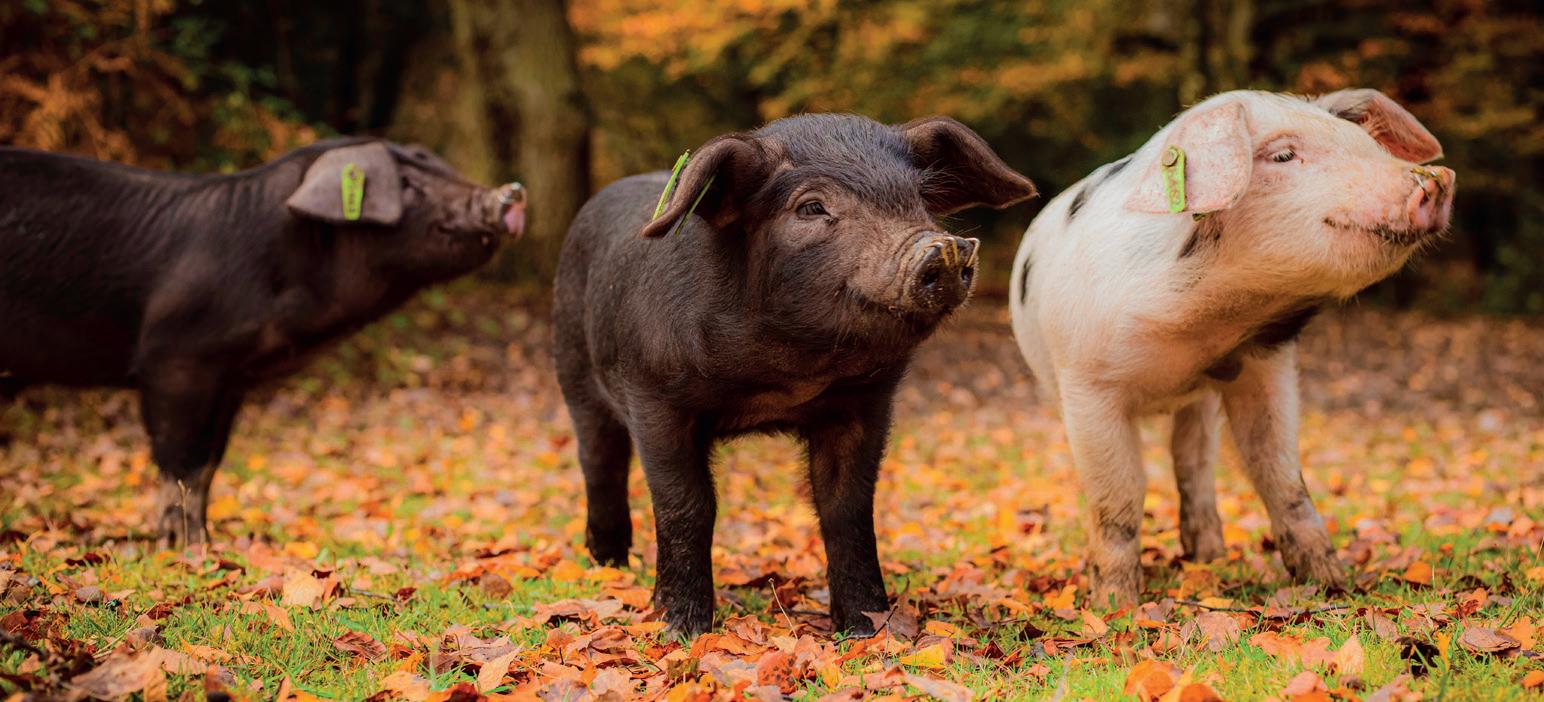
3 minute read
SARAH CALCUTT
WE COME FROM THE SOIL
It’s lovely to be invited to an event where there is both an interesting group of guests and also some outstanding speakers. I was very fortunate to be able to listen to Professor Alan Buckwell's thoughts on the un-sustainability of the British food system at an excellent evening hosted by Rift R&D. This followed the excellent inaugural Kent County Agricultural Society (KCAS) farming conference
There are many pressures on farmers, stemming from a confusion in agricultural, food and social policy. These include the drive for innovation, the need to produce food products from natural resources without destroying the environment, diet and health challenges, the biodiversity and environmental crisis and not least, the very poor current returns in farming.
Professor Buckwell began dissecting the list, starting with the food report and lack of resulting strategy – pressing home the point that we need a food system that doesn’t make us and the planet sick.
With diabetes still on the rise, the solution has to come from a healthy, British-grown diet with a minimum of onward processing. There is an enormous amount of work to be done on how we can shift the national diet with a balance of sources of vital nutrients, and how can this be done with less pressure for land? He referenced Tim Lang’s book Feed Britain and the continuing need to reset how food is regarded and how little is paid for it, with Alan, Tim and also Dieter Helm all agreeing that we need more agri-ecological production.
Professor Buckwell’s third point was that there is pressure to reduce the total area of agricultural land; we must devote some to carbon sequestration and return it to a natural state – clearly through the utilisation of marginal lands and peat restoration etc. His final point was that some intensification of the remaining productive area was necessary, the rapid adoption of new precision technologies coupled with older forms of land management being the focus of the ELMS policy shift. He ended with a challenge to the farmers in the audience: “Are you awake to the global innovation wave? Are you on track to be a part of this innovation in farming and environmental management?”
This all tied in well with the themes explored at the KCAS conference earlier in the month, with Grace O’Dwyer from HSBC bank talking about how supply chains will use sustainability as a measurement metric in the selection of partners. “The gauntlet has been thrown down,” she stated. “Targets need an immediate start.”
She added that growers needed to be optimistic, with climate change a challenge that the industry can rise to. James Smith brought some sharp focus to the discussions with insight into the realities of farming in a changing climate. With a decision made to change production methods, 2021’s weather threw every possible negative climate trait at the potential crop.
James reminded the audience that we come from the soil and we are driven and dependent on the quality of our food; the health of our soil is imperative for the quality of that food. From a perpetual cycle of farming intensively with chemical control regimes, James has come back from the brink of leaving the industry to embracing the five principles of regenerative agriculture:
• Maintain living roots
• Minimise soil disturbance
• Livestock integration
• Diversity •
Protect the soil surface.
To learn more about James’ farming journey into regenerative fruit production, listen to the Farming for Change podcasts.







